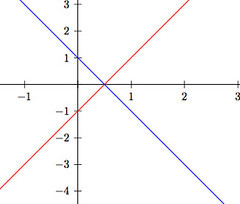Well - 2012 was a big year for me!
1. I completed 30 years in education - the last 12 in administration.
2. I moved across states to live close to my sons, their wives, and their children.
3. I decided to continue teaching ... went back into a high school classroom ... teaching 9th grade algebra!
The retiring, the leaving dear teachers, students and parents, the selling of a house, the buying of another, the move ... and then oh my ... putting together a resume for 30 years of experience, finding work records from the 70s ... well these were challenging tasks! All along the way, the excitement of a new adventure, a twist in my life journey fueled my energy ... enthusiasm has been high!
Adapting to the culture shift in high school has been interesting to say the least.
What I have so thoroughly enjoyed in this teaching adventure is finding an amazing community of math teachers online that share the good, bad, and ugly ... I am learning so much from them! I have always considered myself a leader in education and not a novice with technology. I facilitate university classes online and enjoy working with teachers across our nation. But I had no idea of the networking available among bloggers! I have been blogging for a while - reflective posts, inspirational writing. I had a few followers. Quite definitely, my math blogs have been read much more than any of my previous writings! I am so excited to share my thoughts and work ... and benefit greatly from the posts of others. The teaching of Algebra has changed some in the last 15 years! The emphasis is different. The expectations a bit different. The changes keep me searching, thinking and planning! The online math community has been my primary source for professional learning!
I have a long list of math blogs in my Google Reader. And I appreciate every author! Early in the summer, when I learned I would teach Algebra, I found
Dan Meyer's site first. Just amazing! And then I participated in the
Math Blogging Initiative as a way to get started in writing about my work. I find that I return over and over again to a specific few blogs ... especially these compilations ... these are rich with humor, passion, and ideas!
These sites inspire me to keep learning and growing!
In the future I hope to participate more in the
Global Math conferences. I listened in on one ... it was great! Hopefully I can arrange my schedule to catch up with the next ones!
Whew! Can't imagine what 2013 will hold!















